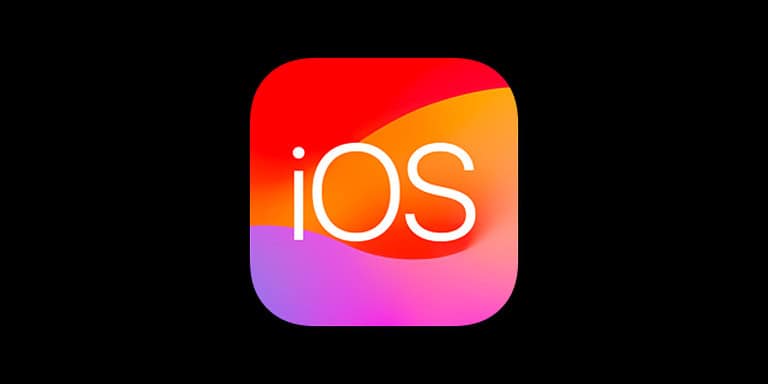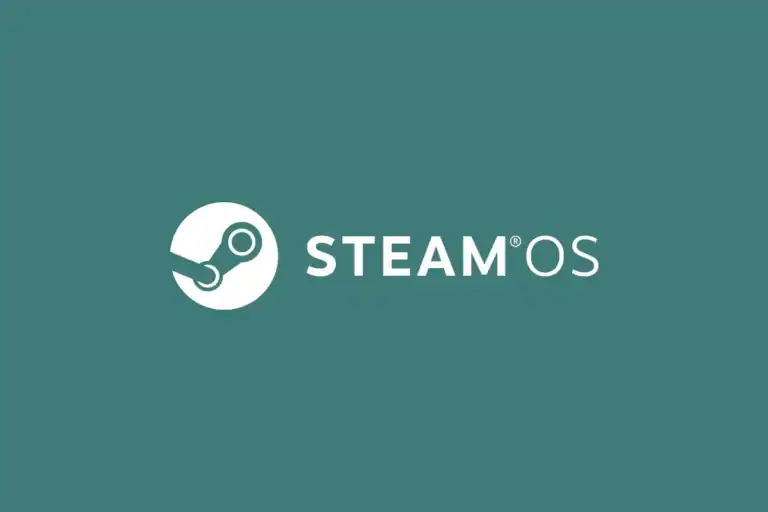
Customer Relationship Management systems help businesses manage their interactions with clients. Finding the right CRM for your needs can boost sales and improve customer service. Choosing the best online CRM system can save your company time and money while increasing customer satisfaction rates.
Today’s market offers many CRM options with different features and price points. Some focus on sales tracking while others excel at marketing automation. You need to consider factors like ease of use, scalability, and integration capabilities when making your choice. The top-rated CRM software options for 2026 include solutions for businesses of all sizes.
1: Zoho CRM
Zoho CRM is a top-rated customer relationship management solution trusted by over 100 million users worldwide. It offers a complete platform to manage all your customer operations in one place.
What makes Zoho CRM stand out is its balance between user-friendliness and powerful features. You get an intuitive interface that’s easy to navigate while still having access to advanced tools typically found in enterprise solutions.
For small businesses, Zoho CRM is particularly appealing. You’ll find it’s easy to customize to fit your specific needs without requiring technical expertise. The quick onboarding process means your team can start using it effectively right away.
Integration capabilities are another strong point. You can connect Zoho CRM with your existing business tools to create a seamless workflow across your organization.
Security is paramount in customer data management, and Zoho takes this seriously. Your information remains protected with robust security measures built into the platform.
Zoho offers flexible pricing options, including a free CRM edition with basic functionality. This allows you to test the system before committing to a paid plan.
The paid plans provide more storage, additional features, and support for more users. You’ll find options suitable for businesses of all sizes, from small businesses to large enterprises.
With Zoho CRM, you get the tools to track sales, manage leads, and improve customer relationships—all essential for growing your business in today’s competitive market.
2: Salesmate
Salesmate is a powerful CRM software designed to help your sales and marketing teams work more efficiently. It brings together all your data, tools, and processes in one place.
With Salesmate, you can streamline your workflow through advanced automation. This saves your team time and helps them focus on closing more deals. The platform offers a free 15-day trial so you can test its features before committing.
For real estate professionals, Salesmate stands out as one of the best real estate CRM options for 2025. It helps agents and brokers manage client relationships, property listings, and sales pipelines effectively.
Salesmate works as an all-in-one CRM solution that unifies sales, marketing, and customer support. This integration enhances your business efficiency and drives growth.
If you’re in real estate, Salesmate offers specialized features for realtors that can increase your team’s efficiency and boost sales performance. The cloud-based platform makes it easy to access your data from anywhere.
You’ll appreciate how Salesmate helps organize customer information and automates repetitive tasks. This lets you spend more time building relationships with clients rather than managing paperwork.
The user-friendly interface makes it easy for your team to adopt the system quickly, reducing training time and increasing productivity.
3: Freshsales
Freshsales is an AI-powered CRM solution designed to boost your sales efficiency. This streamlined system helps you capture leads and close deals faster with less effort.
With its user-friendly interface, Freshsales makes managing customer relationships simple. You can easily track contacts and deals without getting lost in complex menus or settings.
The CRM offers powerful artificial intelligence features that set it apart from competitors. These smart tools can help prioritize your leads and suggest next steps in your sales process.
Freshsales has robust deal and contact management tools that keep your customer information organized. This organization helps you stay on top of opportunities and follow up at the right time.
If you work in real estate, Freshsales offers specialized features for realtors and agents. These tools streamline client management and automate manual tasks that often slow down your day.
For small businesses, Freshsales provides all the CRM features you need at a low starting cost. This affordability makes powerful sales tools accessible even with a limited budget.
You can try Freshsales with a free trial to see if it matches your needs. This gives you a risk-free way to explore its features before committing to a subscription.
4: Pipedrive
Pipedrive is a user-friendly CRM tool designed to help you manage your sales pipeline effectively. It’s known for being easy to use and has earned a reputation as the #1 user-rated CRM in the market.
When looking for the best CRM software for your business, Pipedrive stands out for its intuitive interface. You can quickly learn the system without extensive training, making it ideal for teams of all sizes.
Pipedrive offers powerful sales automation features to help push your deals forward. You can create personalized emails and receive notifications about important updates, keeping your team in the loop at all times.
If you’re concerned about cost, Pipedrive offers a 14-day free trial so you can test its features before committing. This gives you hands-on experience with the platform to determine if it meets your needs.
The advanced CRM tools in Pipedrive help you generate more qualified leads and grow your business. You can track customer interactions, manage contacts, and visualize your sales pipeline all in one place.
Pipedrive also excels in comparison to other CRMs. As the highest-rated CRM by users, it consistently delivers value through its focused approach to sales pipeline management.
You’ll appreciate how Pipedrive organizes your sales process into visual pipelines. This makes it easy to see which deals need attention and what actions you should take next.
5: Nimble CRM
Nimble CRM stands out as a relationship-focused CRM for your entire team. It’s designed to be user-friendly and works seamlessly with your existing tools like Outlook and Gmail.
What makes Nimble special is its social networking focus. You can manage your contacts, deals, and work processes all in one place. This makes it particularly effective for businesses that rely on building strong client relationships.
If you work in a specific industry, Nimble offers tailored solutions. For example, it’s considered one of the best CRM systems for remodelers and builders when it comes to lead generation and customer retention.
Financial advisors can also benefit from Nimble’s communication-based approach. The platform helps you organize contacts and streamline your workflow efficiently.
Your marketing and sales teams will appreciate how Nimble helps them work together. The CRM software for marketing and sales creates a unified system for managing customer interactions.
Even if you’re in a service-based business like personal training, Nimble has you covered. It helps you nurture long-term relationships with clients easily and on-the-go.
You’ll find Nimble particularly useful if you need a CRM that integrates with your email inbox and social media platforms. This integration helps you keep track of all client communications in one centralized location.
6: Agile CRM
Agile CRM is a powerful yet affordable customer relationship management solution designed specifically for small businesses. You’ll find it offers a complete set of sales and marketing features to help your business grow.
This best CRM software stands out by combining sales, marketing, and customer support features in one platform. You can manage your entire customer journey without switching between different systems.
One of the biggest advantages of Agile CRM is its free plan option. You can access robust features at no cost, making it ideal for small businesses with limited budgets. When your needs expand, paid plans are available.
The platform is cloud-based, so you don’t need to worry about complex installations or maintenance. You can access your customer data anytime, anywhere.
Agile CRM’s interface is user-friendly and intuitive. You’ll spend less time learning the system and more time focusing on your customers.
With Agile CRM, you get marketing automation tools that help streamline your campaigns. You can set up email sequences, track engagement, and nurture leads automatically.
The sales features include contact management, deal tracking, and pipeline visualization. These tools help you keep your sales process organized and efficient.
Customer support capabilities allow you to deliver better service. You can track issues, manage tickets, and maintain detailed customer histories.
7: monday.com
Monday.com offers a fully customizable CRM that adapts to your business needs without requiring technical expertise. You can easily edit deal stages, add columns, and manage multiple sales pipelines simultaneously.
This versatile platform works well for teams of all sizes. It’s designed to be user-friendly while still providing advanced features for growing businesses.
Monday CRM is considered one of the best options for teams looking for flexibility without sacrificing functionality. The intuitive interface helps your sales team get up to speed quickly.
Small businesses particularly benefit from monday.com’s scalable approach. You can start with basic contact management and expand as your needs grow. The platform appears in top 10 CRM lists for small businesses, highlighting its effectiveness for companies with limited resources.
E-commerce businesses also find value in monday.com’s CRM capabilities. The system helps you track customer interactions across multiple channels and manage your sales process efficiently.
The pricing structure accommodates different business sizes and needs. You’ll find various tiers that allow you to select the features most relevant to your operations.
With monday.com, you get a balance of simplicity and power. The platform eliminates unnecessary complexity while providing the tools you need to nurture leads, close deals, and build lasting customer relationships.
8: Apptivo
Apptivo stands out as a user-friendly cloud-based CRM that offers a complete customer overview. Its 360-degree view and collaboration tools are just a few clicks away, making it accessible for businesses of all sizes.
When looking for a CRM solution that prioritizes security, you’ll be pleased to know that Apptivo is SSAE18 SOC2 Type II certified, ensuring your data meets the highest standards of privacy and security worldwide.
You can enhance customer engagement with Apptivo’s sales process automation features. The platform offers this robust functionality at an affordable cost, making it attractive for budget-conscious businesses.
For larger small and medium businesses, Apptivo is an excellent choice if you need a highly modular CRM. Its powerful tools for managing calls, deals, and emails help streamline your sales operations.
You can easily evaluate Apptivo against competitors through their comprehensive comparison that displays almost all features alongside pricing information. This transparency helps you see why many consider it a standout option in the CRM world.
The platform’s modularity allows you to customize your CRM experience. You can select only the features your business needs, avoiding the bloat that comes with one-size-fits-all solutions.
9: EspoCRM
EspoCRM is a web-based application that helps you manage all your company relationships. It stands out as one of the leading open-source CRM solutions available today.
What makes EspoCRM appealing is its clean, user-friendly interface. Users praise its slick design and good user experience, making it easier for your team to adopt.
You can download EspoCRM as it’s free and open-source. This self-hosted option gives you more control over your data and customization options.
The system allows you to organize and track all your customer information efficiently. You can store interactions, history, and other important data in one central location.
One significant advantage is the customizable fields feature. This lets you tailor data collection to your specific business needs rather than forcing you to use a one-size-fits-all approach.
EspoCRM has received positive ratings, with some platforms giving it a 4.7 out of 5 rating. This reflects its reliability and effectiveness for many businesses.
By default, EspoCRM may not include product/services sales features or IT ticket reporting. However, you can create these functionalities yourself through its customization options.
If you’re looking for a self-hosted CRM with flexibility and a professional interface, EspoCRM deserves your consideration. Its open-source nature makes it particularly appealing for businesses that want control over their CRM implementation.
10: EngageBay
EngageBay is one of the best free CRM tools for small and medium businesses. It stands out as an affordable yet powerful solution that can help you manage your customer relationships effectively.
The platform offers a comprehensive set of features in its free plan, including a visual deals pipeline that makes tracking sales opportunities intuitive. You can easily see where each potential sale stands in your process.
EngageBay functions as an all-in-one CRM solution for marketing, sales, and customer support tasks. If you’re looking for an alternative to HubSpot that’s designed specifically for small businesses, EngageBay fits the bill perfectly.
You’ll find the online CRM provides a complete toolkit to manage sales and close deals faster. The cloud-based system allows you to access your customer data from anywhere, making it ideal for remote or distributed teams.
For healthcare organizations, EngageBay ranks among the top healthcare CRM systems. The platform can help you manage patient relationships and streamline communication.
Pricing is transparent and flexible, with plans to accommodate growing businesses. You can start with the free forever plan and upgrade as your needs expand.
The user interface is clean and intuitive, reducing the learning curve for your team. This means you can get up and running quickly without extensive training sessions.
Key Features of Online CRM Systems
Modern CRM systems offer powerful capabilities that transform how businesses manage customer relationships. These platforms combine essential features that help teams work smarter and create better customer experiences.
Customization and Scalability
CRM systems should adapt to your specific business needs. The best platforms allow you to customize fields, workflows, and dashboards without needing technical expertise.
As your business grows, your CRM should grow with you. Look for solutions that offer tiered pricing plans that add more features as your needs expand. This prevents you from outgrowing your system too quickly.
Many small businesses benefit from CRMs that let you start with basic functionality and add more advanced features later. This approach ensures you only pay for what you need right now.
Good CRMs also provide industry-specific templates that you can modify for your particular use case, saving significant setup time.
Automation Capabilities
Workflow automation is one of the most valuable CRM features, reducing repetitive tasks and keeping your team focused on meaningful work. This includes:
- Email automation: Sending personalized messages based on customer actions
- Lead routing: Automatically assigning new leads to the right team members
- Task creation: Setting up follow-up reminders without manual input
- Data entry: Capturing information from web forms directly into your CRM
Artificial intelligence features in modern CRMs can analyze customer data to predict buying patterns and suggest next actions for your sales team. This helps prioritize leads most likely to convert.
Automation also ensures consistent follow-up with prospects and customers, reducing the risk of missed opportunities.
Integration with Other Tools
Your CRM shouldn’t exist in isolation. The best CRM systems connect seamlessly with your existing business tools.
Essential integrations include:
- Email platforms (Gmail, Outlook)
- Marketing automation software
- Social media channels
- Customer support systems
- E-commerce platforms
- Accounting software
These connections create a unified view of customer interactions across all touchpoints. When your CRM integrates with your email system, for example, all correspondence is automatically logged without manual entry.
Data syncing between systems eliminates duplicate entry and reduces errors. This creates a single source of truth for customer information that everyone in your organization can access.
Benefits of Using CRM Systems
CRM systems offer valuable tools that transform how businesses manage relationships and data. These platforms deliver measurable improvements in customer satisfaction, operational efficiency, and revenue generation through specialized features designed for modern business needs.
Improved Customer Relations
CRM systems create a centralized hub for all customer interactions, giving you complete visibility into each relationship. This comprehensive view helps you enhance customer satisfaction, a crucial element for business growth.
When customer information is easily accessible, your team can provide personalized service. They’ll have immediate access to purchase history, communication preferences, and previous issues.
Response times improve dramatically with automated routing and task assignment features. No more missed follow-ups or delayed responses that frustrate customers.
CRM tools also enable proactive engagement through:
- Automated birthday messages and anniversary greetings
- Timely follow-ups after purchases
- Personalized product recommendations based on past behavior
This consistent attention builds loyalty and reduces customer churn. You’ll create stronger connections by remembering details and anticipating needs before customers express them.
Enhanced Data Management
Modern CRM platforms excel at keeping all historical data in one place, eliminating scattered information across spreadsheets, emails, and notes. This centralization creates a single source of truth for customer data.
Real-time updates ensure everyone works with current information. When one team member updates a record, the change is immediately visible to all users.
Data quality improves through:
- Standardized input forms
- Duplicate detection tools
- Automated data enrichment from external sources
Security features protect sensitive customer information while maintaining accessibility for authorized users. Role-based permissions ensure employees only see what they need.
Analytics capabilities transform raw data into actionable insights. You can identify trends, spot problems early, and make informed decisions based on reliable information rather than guesswork.
Increased Sales Performance
CRM systems provide powerful tools that increase productivity and boost conversion rates throughout the sales process. Your team can focus on selling instead of administrative tasks.
Lead management features automatically score and route prospects to appropriate team members. This ensures hot leads receive immediate attention while nurturing campaigns maintain engagement with others.
Sales pipelines become visual and manageable with:
- Clear stage progression tracking
- Probability forecasting
- Activity reminders and automated follow-ups
Mobile access keeps your sales team productive in the field. They can update records, access information, and log activities from anywhere.
Performance analytics identify top performers and successful techniques. You’ll see which approaches generate the best results and can replicate winning strategies across your team.
Forecasting tools provide accurate predictions for future sales, helping you make better resource allocation decisions and set realistic targets for continued growth.
Frequently Asked Questions
CRM systems come with many options and considerations. Here are answers to common questions about choosing the right platform for your specific business needs.
What are the top-rated CRM platforms for small to mid-sized businesses?
For small to mid-sized businesses, several platforms consistently receive high ratings. Zoho CRM stands out for its comprehensive feature set and scalability options that grow with your business.
Pipedrive is another excellent choice, particularly for sales-focused teams. Its visual pipeline management makes tracking deals intuitive.
Freshsales offers robust automation capabilities that can save your team significant time on repetitive tasks. Nimble CRM excels at social media integration, making it ideal if your business relies heavily on social engagement.
Which CRM software offers the best value for cost-conscious companies?
Value-conscious businesses should consider Zoho CRM’s free tier, which provides essential features without any cost. This allows you to test the platform before committing financially.
Salesmate offers competitive pricing with plans starting lower than many competitors while still providing core CRM functionality. Their tiered pricing ensures you only pay for features you actually need.
Freshsales also provides excellent value through their free forever plan that includes contact management, deals, and basic reporting features.
What features should be prioritized when selecting a CRM for a startup?
Startups should prioritize ease of implementation and user adoption above all else. A complex system that employees resist using becomes a wasted investment.
Look for scalability features that allow the CRM to grow alongside your business. Avoid systems that require significant reconfiguration as you expand.
Integration capabilities with your existing tools (email, calendar, accounting software) save valuable time and prevent data silos. Mobile accessibility is also crucial for startups with remote or field teams.
How does HubSpot CRM compare to other leading CRM solutions in terms of functionality?
HubSpot CRM offers a robust free tier that includes contact management, deal tracking, and basic reporting. This makes it more generous than many competitors’ free offerings.
Where HubSpot truly stands out is its all-in-one approach. While Zoho CRM and Salesmate require additional purchases for marketing automation, HubSpot’s paid tiers integrate sales, marketing, and service hubs seamlessly.
HubSpot’s user interface is more intuitive than most competitors, reducing training time. However, its premium features come at a higher price point than platforms like Freshsales or Pipedrive.
What are the most user-friendly CRM systems for non-technical staff members?
Pipedrive leads in user-friendliness with its visual sales pipeline that makes deal tracking intuitive even for non-technical users. The clean interface minimizes confusion and accelerates adoption.
Nimble CRM offers exceptional ease of use, particularly for managing social media relationships. Its contact enrichment features automatically gather information from social profiles.
Freshsales provides a straightforward user experience with minimal training required. Its customizable dashboard ensures team members see only the information relevant to their roles.
Which CRM platforms provide the most robust integrations with other business tools?
Zoho CRM offers extensive integration options with over 800 third-party applications. This includes popular tools like Google Workspace, Microsoft Office, and accounting software.
Salesmate provides seamless connections with communication tools, allowing you to track emails, calls, and messages without leaving the CRM. Its Zapier integration extends functionality to thousands of other applications.
Pipedrive’s open API and developer tools allow for custom integrations when standard options don’t suffice. This flexibility makes it adaptable to unique business workflows and specialized tools in your technology stack.






